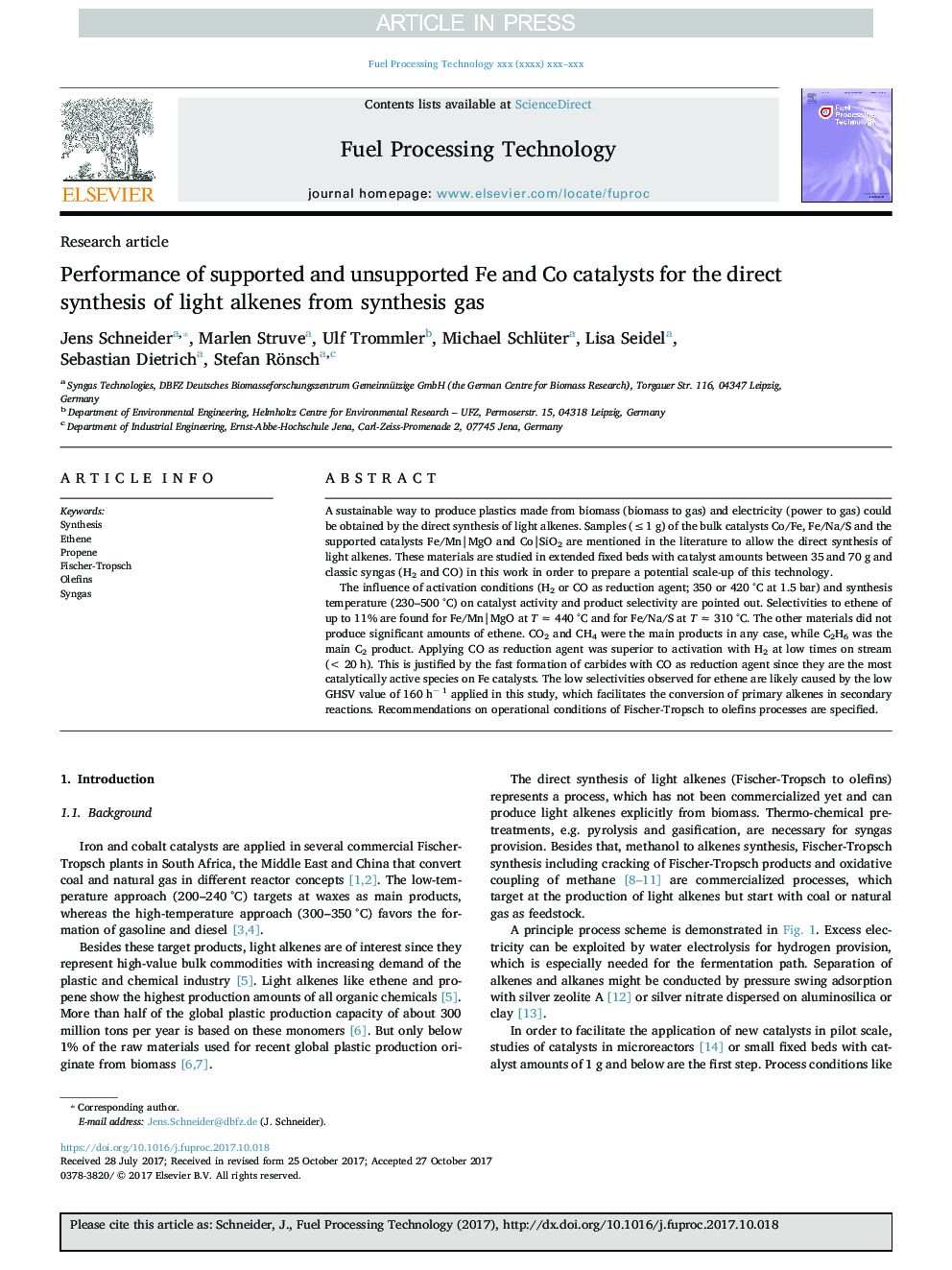| Article ID | Journal | Published Year | Pages | File Type |
|---|---|---|---|---|
| 6656544 | Fuel Processing Technology | 2018 | 15 Pages |
Abstract
The influence of activation conditions (H2 or CO as reduction agent; 350 or 420 °C at 1.5 bar) and synthesis temperature (230-500 °C) on catalyst activity and product selectivity are pointed out. Selectivities to ethene of up to 11% are found for Fe/Mn | MgO at T â 440 °C and for Fe/Na/S at T â 310 °C. The other materials did not produce significant amounts of ethene. CO2 and CH4 were the main products in any case, while C2H6 was the main C2 product. Applying CO as reduction agent was superior to activation with H2 at low times on stream (< 20 h). This is justified by the fast formation of carbides with CO as reduction agent since they are the most catalytically active species on Fe catalysts. The low selectivities observed for ethene are likely caused by the low GHSV value of 160 hâ 1 applied in this study, which facilitates the conversion of primary alkenes in secondary reactions. Recommendations on operational conditions of Fischer-Tropsch to olefins processes are specified.
Related Topics
Physical Sciences and Engineering
Chemical Engineering
Chemical Engineering (General)
Authors
Jens Schneider, Marlen Struve, Ulf Trommler, Michael Schlüter, Lisa Seidel, Sebastian Dietrich, Stefan Rönsch,
